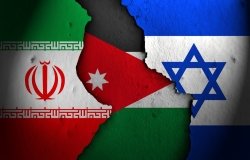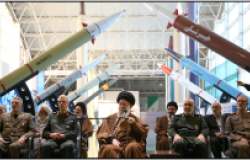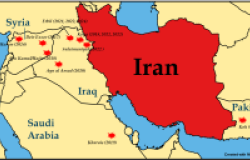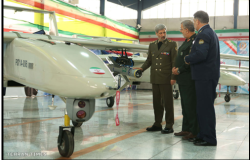Shaking Off the Shakedown State? Crime and Corruption in Post-Ohrid Macedonia
Robert Hislope, Assistant Professor of Political Science, Union College, and Title VIII JSTS alumnus5th floor conference room
Overview
Staff-prepared summary of the East European Studies discussion with Robert Hislope, Assistant Professor of Political Science at Union College and a Title-VIII JSTS Alumnus.
Macedonia's new government, a "guns and roses" coalition including both the Macedonian Socialist Party and an Albanian party formed by the backers of the armed insurrection by Albanians in 2001, assumed office in September of 2002. It replaced an earlier, shakier coalition of the nationalist Macedonian Party, IMRO, with other Albanian parties. Since that time significant efforts have been made to reduce the crime and corruption in the country that exploded when sanctions were implemented against Yugoslavia in the 1990s. Yet, while Dr. Hislope commended the government for quickly initiating a high-profile attack on corruption by clamping down on the Albanian mafia and by going after those who committed crimes under the last administration, he noted that that the conditions that create incentives for crime and corruption remain in place.
It is estimated that corruption costs the government approximately 250 million Euros per year, a large sum for a population of approximately two million. In a previous session at the Wilson Center, Dr. Peter Liotta of the U.S. Naval War College argued that crime and corruption have become the glue in the region to unify disparate ethnic groups. Hislope disagreed with this position, and instead claimed that the presence of corruption has allowed leaders to abuse power, divide Macedonia's territory into personal fiefdoms, squander public assets for private consumption, and has given Macedonia and international reputation such that discourages foreign investment.
The government is clearly moving in the right direction, but many issues remain. Among them are that the ruling coalition has little experience running the state and that many of the Albanian party members are part of the diaspora and have not lived in Macedonia for a long time, if ever. Hislope also recognized the continued importance of ethnicity in Macedonia as an identifying factor. He noted that citizens define themselves first by ethnic identity and only secondarily as "Macedonians." Consequently, there remains no integration between the two segments of the population except for connections on business opportunities. The key question confronting the new government is whether each of the two ethnic communities – the Macedonians and Albanians – is willing to police itself (the last official census in 1990 put the Macedonians at roughly 75% and the Albanians at 25%).
Macedonia is considered neither the worst nor the best country in the region in terms of corruption and human trafficking. Unfortunately, however, it is a weak state confronted by large economic challenges, deep-seeded corruption, and a disillusioned public. These issues will continue to create challenges for the state, described by Hislope as comparable to the curse of Sisyphus.
Hosted By

Global Europe Program
The Global Europe Program is focused on Europe’s capabilities, and how it engages on critical global issues. We investigate European approaches to critical global issues. We examine Europe’s relations with Russia and Eurasia, China and the Indo-Pacific, the Middle East and Africa. Our initiatives include “Ukraine in Europe” – an examination of what it will take to make Ukraine’s European future a reality. But we also examine the role of NATO, the European Union and the OSCE, Europe’s energy security, transatlantic trade disputes, and challenges to democracy. The Global Europe Program’s staff, scholars-in-residence, and Global Fellows participate in seminars, policy study groups, and international conferences to provide analytical recommendations to policy makers and the media. Read more
Thank you for your interest in this event. Please send any feedback or questions to our Events staff.










